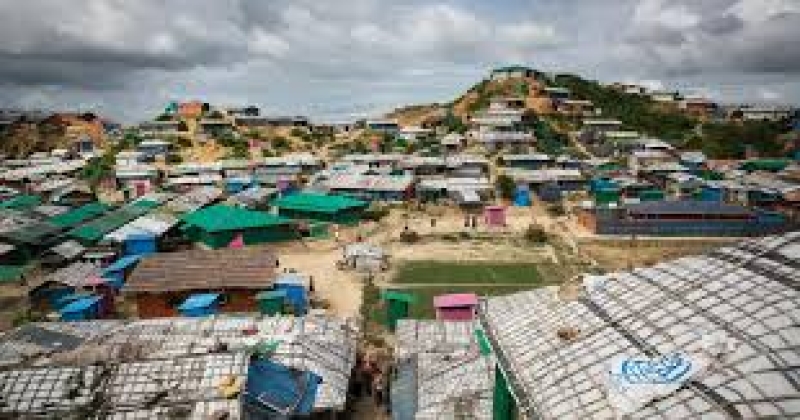- OIC Hails Belgian Declaration of Intent to Recognize Palestinian State |
- Bomb blast kills 15 near political rally in Pakistan |
- Corruption Persists Despite Uprising, TI Chairman Warns |
- Gaza Attacks Intensify as Disabled, Hungry Civilians Suffer |
- Stock indices edge up in first hour at DSE, CSE |
Rohingya crisis is an ASEAN concern: APHR

The ASEAN Parliamentarians for Human Rights (APHR) on Thursday said the Rohingya crisis is not a distant issue but it is an ASEAN concern.
It said if the regional bloc continues its inaction, the costs will be high - human trafficking, arms and drug smuggling, including an influx of refugees that would continue to threaten stability across the region.
To prompt a collective response guided by the principle of burden-sharing, the APHR called for the creation of an ASEAN platform on the Rohingya issue, which would enable high-level discussions and the development of a unified action plan reflecting the shared responsibility of all member states.
From September 1-4, the APHR delegation—composed of former and current lawmakers from Malaysia, Thailand, and the Philippines—visited Cox's Bazar to assess the escalating humanitarian and human rights crisis facing Rohingya refugees and host communities.
While on the ground, APHR reasserted that ASEAN ignored the root of the crisis; it is already at a critical stage.
The World Food Programme, in fact, warned that food rations will run out after November 2025 unless 17 million USD per month is secured.
The APHR mission to Rohingya refugee camps in Cox’s Bazar extended its gratitude to the government of Bangladesh for hosting and supporting the Rohingya community despite enormous challenges.
APHR also expressed its gratitude to Chief Adviser Prof Muhammad Yunus for a productive meeting with the delegation where findings and recommendations for a sustainable solution to the crisis were discussed.
The dialogue was a critical step towards ensuring the voices of the Rohingya and the concerns of the host community are heard at the highest levels of the Bangladeshi government.
The mission follows up on key findings from a January 2018 APHR fact-finding segment and aims to urgently inform key duty-bearers, particularly ASEAN and its member states, of the imminent food shortage in the refugee camps, among other challenges to their living conditions.
APHR urged the immediate creation of an ASEAN Humanitarian Fund to deliver life-saving support and prevent mass hunger among Rohingya refugees in Bangladesh.
Ensuring access to education is paramount in safeguarding the foundations for safe, voluntary and sustainable repatriation.
For that reason, APHR called on ASEAN to partner with Bangladesh to guarantee access to accredited schooling and vocational training for Rohingya children and youth.
In this light, APHR commended the Philippine Government for providing scholarships and higher education opportunities to Rohingya students that other ASEAN member states can follow suit.
The mission underscored the required commitment of ASEAN to regional stability and human rights.
APHR urged the international community, humanitarian actors, and Southeast Asian governments to act with urgency and compassion to address the humanitarian needs and political complexities of the Rohingya crisis.
Co-Chair of APHR Charles Santiago said, “Eight years since the Rohingya crisis began, and ASEAN is still not treating this issue as its own. APHR first raised this in 2018, and today we repeat our call for an ASEAN Humanitarian Fund. If ASEAN continues to look away, the costs—human trafficking, illicit trade, and growing instability—will be borne by the entire region.”
Member of the Board of APHR Wong Chen said, “The Rohingya people are from Myanmar and since Myanmar is an ASEAN state, ASEAN Member States have an obligation with the international community, to provide sufficient food aid to the refugee camps who will soon be at risk of mass starvation.
“According to the World Food Program, by the end of November 2025, there will be significantly less budget for the food rations program due to deep USAID cuts. A sum of $17 million USD per month is needed to sustain 1.3 million in the camps.”
APHR member Raoul Manuel said, “Rohingya youth cannot remain trapped without access to accredited education and relevant skills training. Their future, and any hope for durable solutions, depends on ensuring they have the tools to live with dignity and contribute to building a peaceful and democratic Myanmar. We call on ASEAN to work closely with Bangladesh to make this possible.”
ASEAN Parliamentarians for Human Rights (APHR) is a regional network of current and former parliamentarians who use their unique positions to advance human rights and democracy in Southeast Asia, reports UNB.

